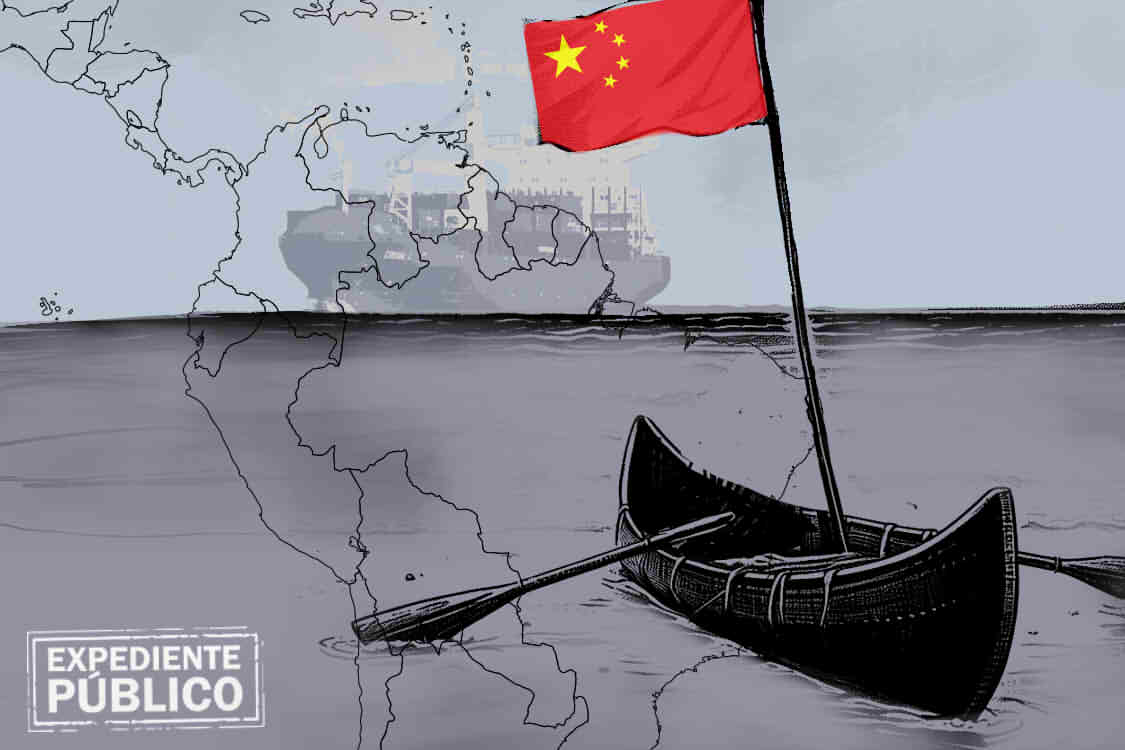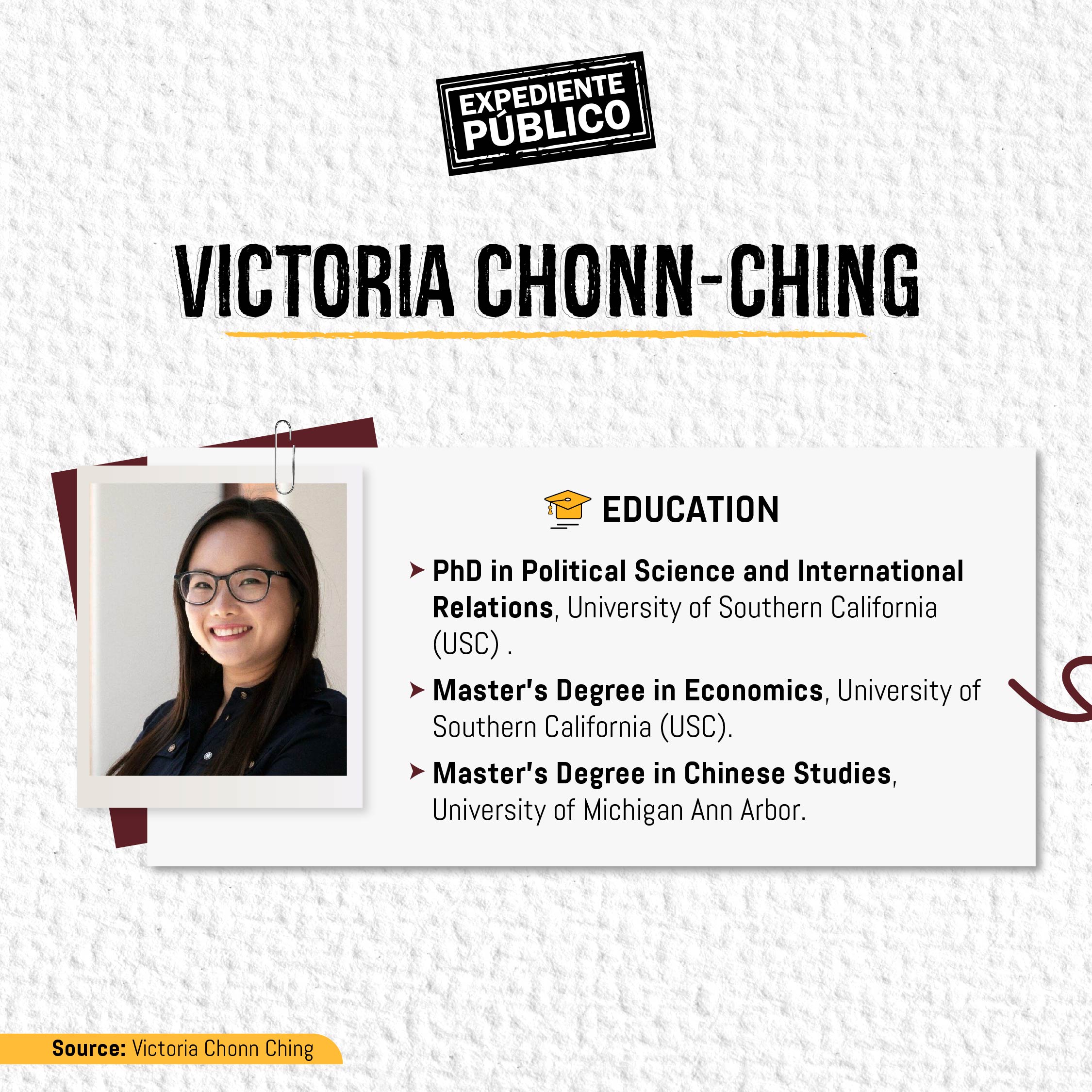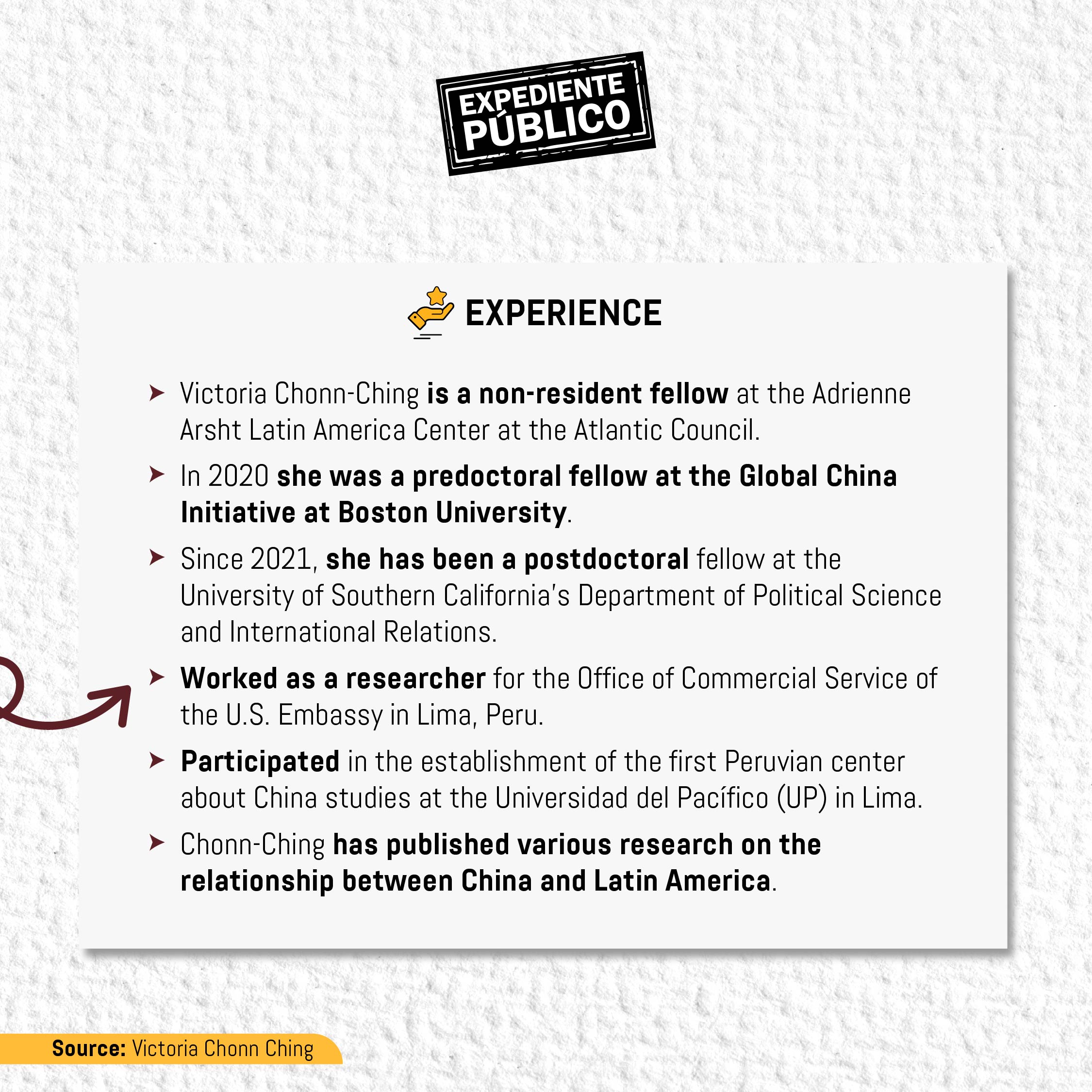* Non-resident member of the Adrienne Arsht Center for Latin America of the Atlantic Council explained to Expediente Público that the region has “a problem of continuity in relations with China”.
** The expert advised having balance between national interests and the search for a great global ally.
*** She also stressed the importance of maintaining relations with constant policies and not changing each time there is a new government.
Sharon Ardon / Expediente Público
Ensuring investments from China and ensuring that they do not last until the period of change of government, depends only on the internal and economic policies implemented in each country, Victoria Chonn Ching, a non-resident researcher at the Adrienne Arsht Center for Latin America at the Atlantic Council, told Expediente Público.
In Central America, only Guatemala has chosen to maintain diplomatic ties with Taiwan, while the other countries – since 2007 with Costa Rica – have abandoned their support for the island nation, in search of investments and the market of the People’s Republic of China.
Whether this change in relations will be beneficial “depends on the domestic agenda, as well as the actors brought to the discussion table, such as economic and social consortia, executive groups, etc.,” said Chonn Ching.
Subscribe to Expediente Público’s newsletter and receive more information
In the context of an international meeting on the challenges that China represents for Latin America, held at the Jack D. Gordon Institute for Public Policy at Florida International University (FIU), Chonn Ching gave an interview to Expediente Público, in which she indicated that the basis of effective relations with China is not only about signing agreements.
“You can do all the negotiations you want, [but] what happens after that first step?,” she questioned.
Chonn Ching, also an associate professor in the Department of Political Science and International Relations at the University of Southern California, said that overcoming the regional challenge of the lack of continuity in relations will be essential to avoid stagnation in these exchanges.
Nicaragua and Honduras only restarted their relations with China in December 2022 and March 2023, respectively. El Salvador, for its part, did so in August 2018.
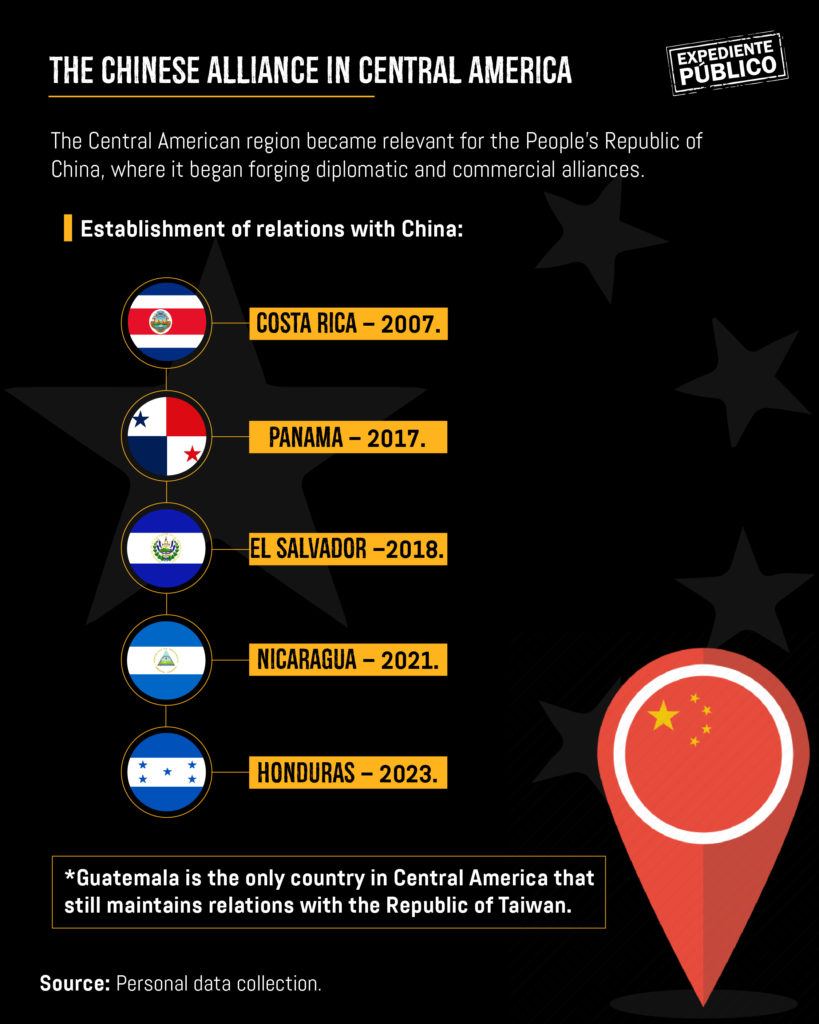
Chonn Ching proposed that to achieve stability, countries must develop coherent domestic policies that reflect their national interests and priorities.
You may be interested: Ambassador Laura Dogu: They must ensure that business with China benefits Honduras
Challenges
Chonn Ching considered China’s role in Latin America as a promising alternative in terms of economic opportunities and investments, especially in sectors such as infrastructure.
“[China] came and continues to come with opportunities that many times, other organizations, other institutions or even countries perhaps do not have, nor the economic capacity or resources to provide,” she stressed.
However, Chonn Ching emphasized that accessing these opportunities that China offers will depend on state capacity, institutions, and the economic and international policies that each country implements.
You can read: China and its level of reach in three Central American countries
Unestablished relationships
For Chonn Ching, the relationship between Latin America and China is currently in a continuous process of development.
The expert perceived that, both in Latin America and in China, changes have occurred and continue to occur, whether economic, political, or social, which pose “challenges that both parties need to face”.
“We are still in a learning process, I wouldn’t say total consolidation,” she stated.
She cited the example of Brazil and Chile as countries that have advanced in this learning process, and others in Central America and the Caribbean that are in the initial stages of establishing stronger relations with China.
Why do relationships stall?
Costa Rica established diplomatic relations with the People’s Republic of China in 2007. It was the first Central American country to establish them during the second administration of Óscar Arias (2006-2010).
The researcher recalled that after the reestablishment of diplomatic relations; in 2010, during the administration of Laura Chinchilla (2010-2014), Costa Rica signed a Free Trade Agreement (FTA) and there was a lot of “enthusiasm” at the beginning of its relationship and its negotiations with China, but over time, it was observed that the bilateral dynamic was losing momentum.
For example, in 2010 the Central American country enjoyed a favorable trade balance with China for almost 100 million dollars. However, in 2022 the dynamics changed, and the country experienced a trade deficit with the Asian country that amounted to almost 3 billion dollars, that is, 2,835 million.
“Relations with China have not been as commercially successful [as] we would have liked,” Costa Rican Vice Minister of Foreign Affairs Christian Guillermet told Voz de América.
In that sense, Chonn Ching clarified that it is not a question of lack of interest on the part of Costa Rica in strengthening the relationship with China, but that the Central American nation also gives priority to other neighboring countries and, especially, to the United States, which continues being its main business partner.
“As a region, we have that problem – continuity,” lamented Chonn Ching.
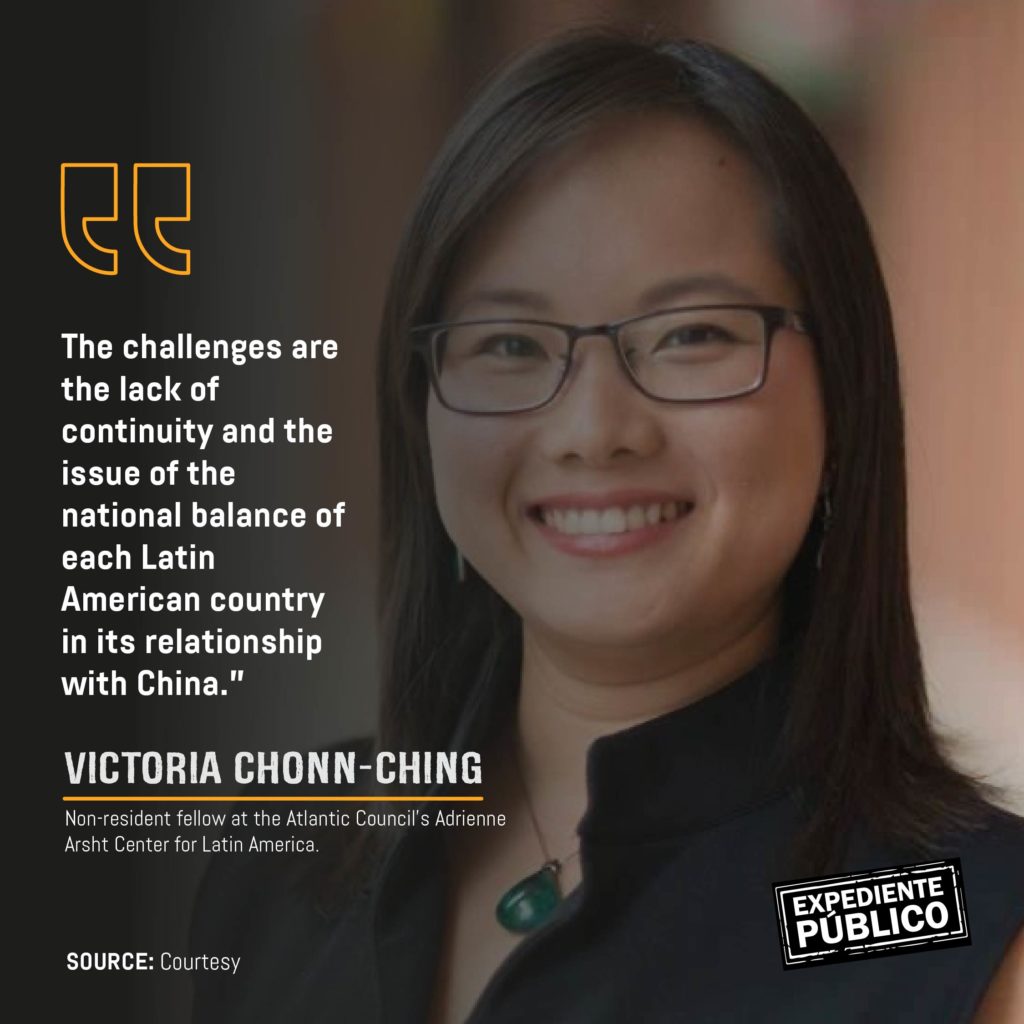
Maintain a balance with China
The expert reiterated the importance of “domestic agency” when addressing relations with China. In this case, she refers to the ability of Latin American countries to manage their own internal policies and balance their national interests with the opportunities that China offers.
“It’s not just what China offers or does, it’s also how Latin American countries deal with our own policies and balancing that with our global integration,” she noted.
In that sense, she suggested that the countries of the region think about maintaining this balance to establish relations with China, and to achieve this, the expert urges the countries to participate in strategic negotiations, considering their regional objectives and priorities.
We must “prioritize our own interests as a region or as a subregion,” she pointed out.

